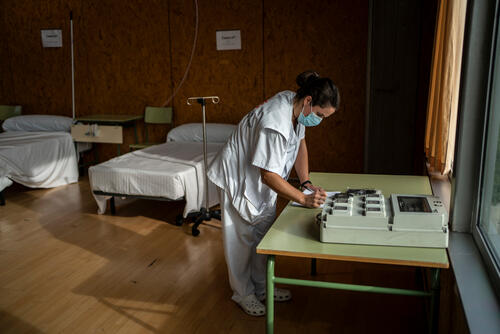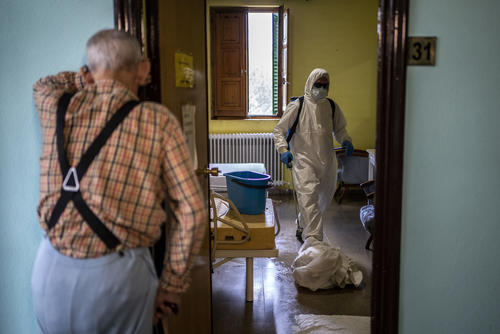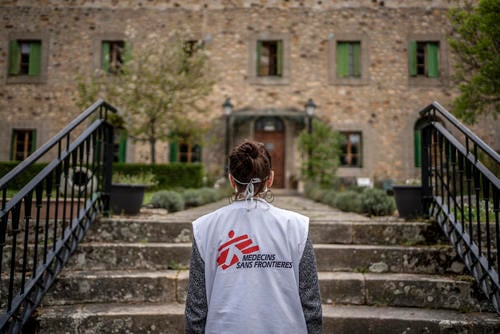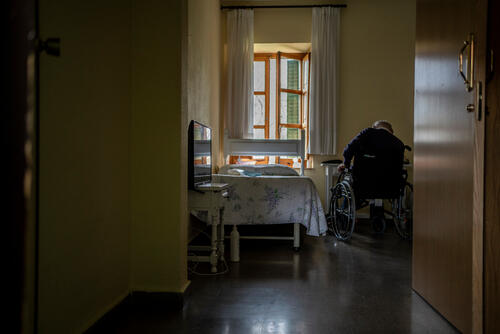Barcelona – Médecins Sans Frontières (MSF) is extremely concerned about the situation for elderly people during the COVID-19 outbreak in Spain. We call on the Spanish health authorities to ensure that care for elderly patients is compassionate and that dignified farewells are facilitated between patients and families both in their final hours and after they have died.
This should be done while always maintaining due respect for distance and protection measures, as well as limiting the number of those present.
“There are elderly people dying alone, without their families, in residential care homes and hospitals, which is something that shouldn't happen. We have to find a safe way for all of us to offer these people a dignified farewell,” says Dr David Noguera, President of MSF Spain and coordinator of MSF’s response in Catalonia. “We know that they are the most vulnerable group, whose health is most threatened by the coronavirus. Therefore they are the ones that urgently deserve more attention."
MSF, and indeed Spanish society, demands that patients have the right to live and die with dignity. Only together will we overcome this pandemic.Dr David Noguera, President of MSF Spain
Part of the Spanish regulations developed in response to COVID-19, the ‘Procedure for handling corpses of COVID-19 cases’, states that “before proceeding to the transfer of the corpse, family and friends must be granted access to say their goodbyes, restricted only to those closest to the deceased”. Along the same lines, the guidelines applicable to this kind of pandemic from the World Health Organization (WHO) establish a patient's right to receive visits as essential.
In this context, residential care homes should be a key part of the health system and should be able to provide all the appropriate medical care for their residents, while always providing swift hospital referrals where necessary.
“It is vital that the management of the situation in care homes be incorporated into the comprehensive and unified management of this outbreak, as an essential part of the health system response,” says Noguera. “We have to move beyond jurisdictional boundaries between local and national governments departments. Like other administrative divisions, they are useful in a normal situation but an obstacle when the necessary measures must be expedited.”
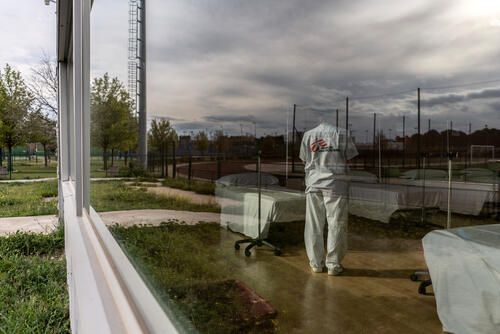
Specialised care centres
MSF is also advocating for the management of pain for terminally-ill patients to follow the usual protocols.
“We believe that it is essential that these people have access to specialised palliative care personnel, whether at home, in hospital, in an external health unit, in a residential home, or in what we call the ‘comfort pavilion’,” says Dr Noguera. “This last option is a temporary medically-equipped facility for the terminally-ill, designed to offer patients palliative care in a dignified manner during their final hours.”
“We know that efforts are being made. MSF wants to help Spain’s elderly to have a dignified farewell close to their families,“ Noguera continues. “For this reason, we have started a project along these lines in Barcelona that we are replicating across the country.”
MSF providing advice on palliative care
MSF is currently advising the authorities and staff of residential care homes and hospitals about palliative care, the handling of personal protective equipment, hygiene measures and the design of patient flows to reduce the risk of spreading the coronavirus.
Psychosocial and mental health support is another key element in this process.
“Not only for elderly people, but also for their families. And for the workers at the residential homes and the medical and sanitary personnel, who work long, exhausting and extremely tough days watching their patients die alone without any family contact,” says Noguera.
"MSF, and indeed Spanish society, demands that patients have the right to live and die with dignity. Only together will we overcome this pandemic. And only by working together will we find a way for our elderly and their families to receive the care they deserve."



